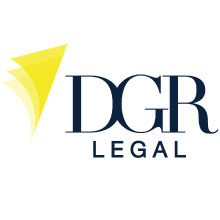4 Tips for Law Firms Who Want the Most Out of Their Process Server
By Amanda Sexton
Process service isn’t something every office manager has to deal with on a regular basis. But with the potential to impact client satisfaction, staff workload and timelines for cases, it should be on every administrator’s radar. Below are some helpful tips you can use (or pass along to your staff) to make sure subjects and entities are getting served as quickly as possible.
If you are attempting service at home or at work, see if your client knows when the subject will be at that location.
Know the person you’re trying to get served works in New York City? Give your process server a heads up.
It might not seem like a big deal, but it can drastically cut down on the time it takes to get someone served.
Consider this scenario: At DGR, the minimum is three attempts at three different times of the day. Not knowing the subject works in the city, we’d attempt early morning, mid-day and evening. It might take until the third attempt to get the subject served. But if we knew in advance that the person left his/her house early in the morning, and didn’t get home until later at night because of his/her commute, we’d first begin our attempts later in the evening.
This minimizes the number of attempts made, but, more importantly, expedites the timeline for effectuating service and moving the case forward.
Can’t locate an individual and need a due diligence search/locate? ALWAYS send in the driver’s license number, if available.
Don’t underestimate the power of a driver’s license number to help speed up search results.
Depending on the state, with a driver’s license number, searches can be conducted online (provided your process server has access), reducing the turnaround time to one or two days.
New Jersey is one of those states wherein searches can be completed online. Without the driver’s license number, a request for a report must be mailed to the Motor Vehicle Commission. A response can take up to three weeks, which is a lot longer than the one or two days for an online search.
If possible, try to see if your client knows the driver’s license number of the individual being served. A faster due diligence search means service is completed faster—a direct benefit for the client.
Have an alternate address you want the server to attempt? Be sure to include this information in the original cover letter.
If no other address is given, the server only attempts service at the given address, and then comes back to the office to notify you that the individual is not at the address. You provide the second address, and the server goes back out the next day to attempt service. Total service time is anywhere from three days to two weeks.
By providing a new address, the situation turns into one where the server can go from the old address right to the new one, cutting down on the amount of time it takes to complete service. Now you’re looking at closer to two to five days for service.
Serving someone as part of a company? Let your server know if they are the registered agent or officer.
Proper service is what everyone wants when papers go out to be served. But when you send a service to be served on ABC Corp. c/o John Smith, the rules of service are very different depending on whether John Smith is the registered agent, an officer or simply accepting the papers on behalf of ABC Corp as the attorney judgment creditor.
Serving a registered agent is much easier, and is usually completed quicker than if it is simply an individual accepting on the corporation’s behalf, so for the sake of your case, let your process server know!
Serving a company at a residential address can be even more complex. Depending on the case type, a member of the household can be served rather than requiring personal service or service on an officer of the company. This means you could serve the wife or child (over the age of 15) with the papers, and consider the service both completed and valid.
In Summary
Cutting weeks or days off the time it takes to complete service is important for any law firm. Hopefully, these tips will help you and/or your staff develop a more effective relationship with your process server, benefiting everyone in the long run.
Amanda Sexton is Director of Corporate Development for DGR. DGR, which began in 1981 in an attic, is a professional legal services company offering a wide range of services from process service to foreclosure services. Amanda may be reached at [email protected].





















